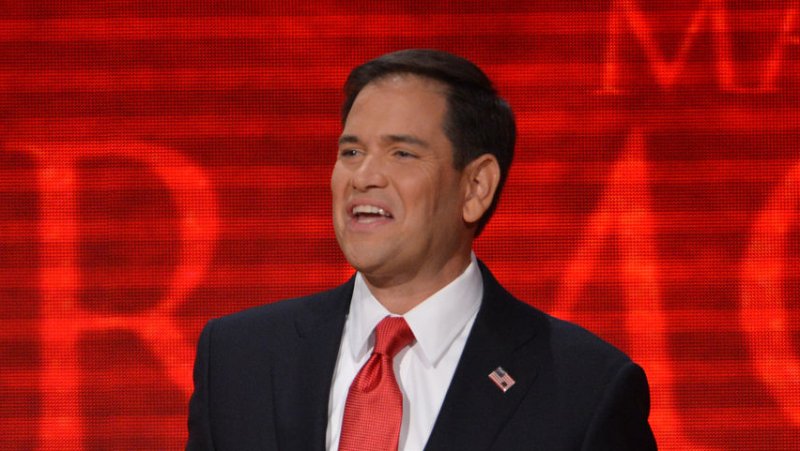Senator Marco Rubio (FL) speaks at the 2012 Republican National Convention at the Tampa Bay Times Forum in Tampa on August 30, 2012. UPI/Kevin Dietsch |
License Photo
WASHINGTON, Jan. 15 (UPI) -- Two men, rising stars in their political parties, offered proposals for U.S. immigration reform that address the 11 million undocumented workers already here.
Sen. Marco Rubio, R-Fla., pushing to take the lead on the flashpoint issue, previewed a plan that includes measures to give legal status in some instances.
Los Angeles Mayor Antonio Villaraigosa called for comprehensive immigration legislation that includes a path to citizenship for the estimated 11 million people already in the United States illegally, the Los Angeles Times reported.
Rubio, who is Cuban-American, said he wouldn't dismiss out of hand some type of legal status for immigrants in the United States illegally, but he said any such measures shouldn't penalize immigrants who have tried to come to the United States through legal channels, The New York Times reported Monday.
Rubio outlined his proposals last week with The Wall Street Journal and The New York Times. Among other things, Rubio said any legislation should ensure fair treatment for immigrants who play by the rules, as well as recognize that legal immigration has been good for the United States in the past and is "critical to our future."
He said he also would demand new measures to ensure strict enforcement at the border and within the country.
"We can't have the kind of vibrant growth we need and the economy we want, based on limited government and free enterprise, if we don't have a legal immigration system that works," Rubio said. "And in order to have a system that works, we have to deal with those people who are already here illegally."
Rubio told The New York Times he would try to revise the visa system to bring in more educated immigrants with skills in technology and science.
Concerning the estimated 11 million illegal immigrants in the country, Rubio said, "We have to understand these folks are here to stay," adding that most of them were not habitual or violent offenders.
"The right way to deal with them is not amnesty," Rubio said, "and it is not a special pathway to citizenship."
Rather, he would offer a provisional legal status to immigrants who passed criminal background checks, paid fines and passed English and civics tests. After a certain period, they could apply to become legal permanent residents, a status that would allow them to become citizens, Rubio said.
Under Villaraigosa's plan, illegal immigrants would undergo background checks, demonstrate skills and knowledge of the English language, U.S. civics and pay back taxes before they could be processed for legal status.
Villaraigosa, who is Mexican-American, also said immigration overhaul should include effective employment verification and "smart enforcement."
"We've created an immigration system that is long on enforcement but short on opportunity ... a system that happily capitalizes on the labor of millions of undocumented men and women but then refuses to extend them the basic rights and privileges that most of us take for granted," he said during a speech at the National Press Club.
"The goal of our immigration enforcement policy should be to remove real threats to our borders and inside our country," Villaraigosa said. "We should deport serious offenders. We should not deport people whose most serious crime is a lack of papers."
Villaraigosa also said his plan for immigration overhaul was financially smart, the Los Angeles Times said.
"This doesn't just make moral sense. It makes economic sense," he said. "If we legalize the 11 million undocumented immigrants here in the United States, we'd give an infusion to our economy of $1.5 trillion, a shot in the arm over the next decade. The federal government would see $4.5 billion in more tax revenue in just three years."















